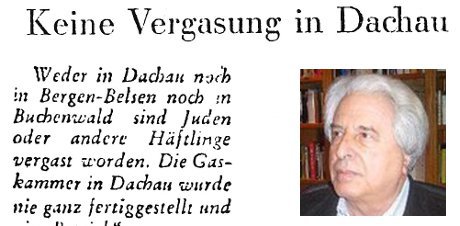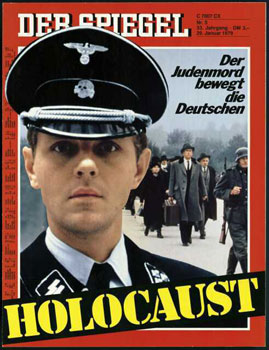Martin Broszat
Martin Broszat ( born August 14, 1926 in Leipzig, † October 14, 1989 in Munich) was a German historian.
Life
The son of a postal inspector visited from 1937 until his graduation in 1944, the Queen Carola High School in Leipzig. His 1946 begun at Leipzig University studying history, German literature and philosophy, he began in 1949 in Cologne continued in 1952 earned his doctorate with a thesis on ' anti-Semitic movement in Wilhelmine Germany " and went in 1955 as a research associate at the Institute for Contemporary History in Munich. Here he edited since 1960, the Quarterly Journal of Contemporary History and moved in 1972 as the successor of Helmut Kraus Nick at the head of the Institute, which he directed until his death.
Broszat was Honorary Visiting Professor in Konstanz, Munich and Oxford; his main area was the social history of the Third Reich and the history of anti-Semitism in Germany. In "The State of Hitler " (1969) he succeeded in the representation of a comprehensive structural history of National Socialism. Which he led research project " Bavaria in the Nazi era " date has hardly undeveloped areas of the everyday world.
Methodically he belonged in the interpretation of the Third Reich 's leading functionalists that. Way to the Holocaust not as well-planned intentional goal attainment, but caused by radicalization within self-imposed property and mobilization constraints of the Nazi bureaucracy interpreted (see Nazi research )
Martin Broszat occurred before the beginning of the Historikerstreit one for a methodical historicization of National Socialism. So he said in the essay published in 1985: " A plea for a historicization of National Socialism" for normalization in dealing with the Nazi past in the history of science. A discussion so from a primarily moral- judgmental perspective on how it is been the case in the history of science would make it difficult to scientifically - differentiated access to Nazism. Desirable in the study of National Socialism was a pathos of sobriety. That Historisierungs' - plea triggered a discussion between Broszat and Saul Friedlander, which was conducted ostensibly about an exchange of letters between the two historians. From the outset, intended for publication, this exchange of letters published in 1988 in the quarterly specifications for contemporary history. Saul Friedlander expressed herein his concerns about Broszat finding of a lack of complexity of previous academic work in order to then ask for the actual motives of the demand for historicizing. Broszat distanced himself from an interpretation of his theories as a relativization of National Socialism. Rather, he wanted it to be understood as a plea against the repression of the past. Assuming that an increasing disenchantment would use with regard to the moral evaluation of National Socialism, attention must, judge, taking into account scientific and analytical methodology, on the claim of "historical understanding " in this era. Broszat therefore called for a cross-period employment with National Socialism and a more differentiated view of the development history of this era.
2003 appeared findings regarding a NSDAP membership Broszat. Norbert Frei discussed in an article in the weekly newspaper Die Zeit, whether Broszat his membership in the Nazi Party deliberately concealed or not known about her.
Publications
- Eds, Introduction & Communications Rudolf Hoess: Commandant in Auschwitz. Autobiographical notes. DVA, Stuttgart 1958; last dtv 1998 ISBN 3423301279
- Nazism: ideology, program and Reality, 1960
- National Socialist policy towards Poland 1939 - 1945, 1961
- Two hundred years of German policy toward Poland. 1963
- National Socialist concentration camps 1933 - 1945, in:. Anatomy of the SS State, Volume 2, 1965, pp. 9-160
- The Croatian Ustasha state, 1941 - 1945, 1966
- The state of Hitler: the foundation and development of its internal constitution, 1969
- With Elke Fröhlich et al ( Eds.), Bavaria in the Nazi era, 6 volumes, Munich / Vienna 1977-1983
- The seizure of power. The rise of the Nazi Party and the destruction of the Weimar Republic, 1984
- After Hitler. The difficult dealing with our history. Posts by Martin Broszat. Edited by Hermann Graml and Klaus -Dietmar Henke, Oldenbourg, München 1986, ISBN 3-486-53882-9.










